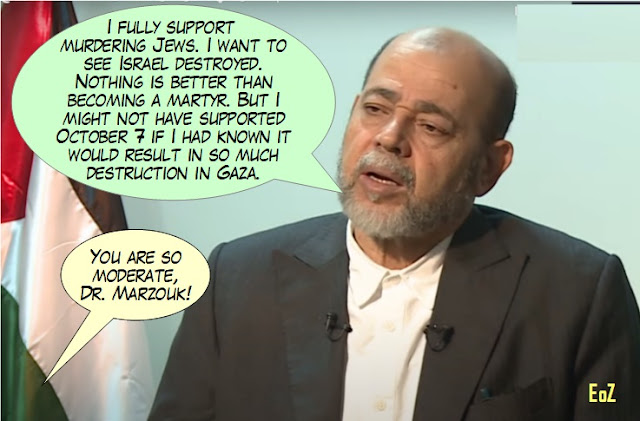The West is colonizing the Palestinian cause
This term “Palestine” was first introduced by the Romans. Expelling the Jews from their land, they renamed Judea as Palestine. Over the centuries, this term was accepted by Jews themselves. The Land of Israel and Palestine became synonymous.Dara Horn returns to history — and literature — after Oct. 7
But in the 1920s, the West migrated the term. Arabs in Palestine at the time expressed their collective sentiment through the nascent Hashemite Arab Kingdom of Syria. They identified as Syrians. When France took over Syria and ended the Arab Kingdom, Western colonialist offices imposed a new identity on Arabs in Palestine: “Palestinians.” British diplomat Mark Sykes (of the Sykes-Pictot agreement) even came up with a flag.
While this colonialist identity-engineering exercise was initially rejected by Arabs living in Palestine, European powers cultivated the notion of Palestinian nationalism in order to promote their own Western interests: The British as counterforce to the Jews, Germans as counterforce to the British, and since the 1993 Oslo Accords, the EU and European governments as a counterforce to the State of Israel and by extension to America.
This worked and, by the turn of the 21st century, it was clear that the term Palestine, as well as the Sykes flag represented the national movement of Palestinian Arabs.
But in recent years, and especially since October 7, the term has been migrating, yet again, from describing a group of individuals in the Middle East, toward describing an abstract concept in the West.
This, for example, was reflected in the September 2023 University of Pennsylvania Palestine Writes festival. American students were not expected to write of the longing for a land they never been to – nor knew much of – but about such concepts as: occupation, suppression, injustice. Similarly, President Donald Trump referring to Senator Chuck Schumer as a “Palestinian” is not a reference to his ethnic background, but to his ideology.
Some can argue, cynically, that the re-appropriation of the term is legitimate. After all, it was Europe who “owns the copyright” on the term Palestine: The Romans created it, and the British, French, and Germans promoted it.
But what about the human rights of Palestinians themselves?
Voluntary de-Palestinization
Repeatedly, Palestinians are denied their basic rights to personal self-determination by their European oppressors. When Palestinians chose to be employed and mentored by Jewish-owned businesses, European governments launched aggressive campaigns to have those businesses shut down, such as SodaStream. Similarly, when Palestinians in Gaza chose to flee a war zone, the West failed to provide escape routes, and now that President Trump has introduced such a plan, Westerns are opposing it, effectively denying Palestinians the basic human right to leave.
There is an inevitable clash: Europe and Europhilic circles in the United States care exclusively about Palestinian national rights, even at the price of Palestinian human rights. This, while Palestinians naturally care about their personal safety, prosperity, and indeed rights as human beings.
To put it bluntly, Europeans and Western pro-Palestinians dehumanize Palestinians.
We are in an era of seismic changes. The Middle East of September 2023 is not coming back, and therefore, Western foreign offices and seasoned peacemakers should get rid of legacy frameworks and assumptions that, perhaps, were relevant back then, but are only standing in the way of peace today.
In this realm, there is a golden opportunity to shift away from frameworks based on a zero-sum game, such as “land for peace” and the two-state solution, toward frameworks that are based on a win-win, such as the Abraham Accords and President Trump’s Gaza relocation plan.
The last few years have been strange ones for writer Dara Horn. Used to creating imaginative Jewish worlds as a fiction writer, she published her first nonfiction book in 2021, expecting it to be a “detour.” Instead, the publication of People Love Dead Jews: Reports from a Haunted Present, about the very real and often very depressing world that Jews inhabit, changed the course of her career.BBC is in crisis and only systemic change can fix it
“I became this receptacle for all of these horror stories from Jewish readers,” Horn said. “I was immersed in this dumpster fire that now all of us are living in.”
The book was a series of essays examining the ways in which different societies engage with Jewish history and culture — usually, she found, by venerating Jewish suffering in traumatic historical events such as the Holocaust or the Spanish Inquisition, without teaching people to reckon with Jews as they currently are. The argument was explosive even before the Oct. 7, 2023 Hamas attacks. Since then, the book’s title has become a ghoulishly ironic tagline for many Jews.
“The premise of the book is really that Jews are only acceptable in a non-Jewish society when they have no power, whether that means politically impotent or dead,” Horn told Jewish Insider in an interview this week. “That is just roaring back at us now. That is the only way that it’s acceptable to be Jewish, if you have no agency.”
Now, Horn has published her first new book in more than three years, a departure from both the award-winning literary fiction she is known for and the nonfiction essays about antisemitism she has written for major publications including The Atlantic and The New York Times since Oct. 7.
One Little Goat: A Passover Catastrophe is a graphic novel, geared toward middle school readers, about a family that gets stuck at their Seder for six months because their house is so messy that the children are unable to find the afikomen. In order to retrieve it, the protagonist must go on a time-travel journey through thousands of years of Jewish history, visiting Seders throughout time — guided by a talking goat from the song “Chad Gadya” — until he retrieves the afikomen, finally saving his family from the longest Seder ever.
“If you’ve ever been to a Passover Seder, you know that they feel like they last forever,” the book begins. In the pane below, the text reads: “It’s a holiday celebrating freedom, but you are stuck at that table for a very long time.” Horn read this passage with a laugh, and a word of praise for the illustration skills of her collaborator Theo Ellsworth, a cartoonist in Montana who she cold-emailed after she found her kids reading one of his books.
“The way he illustrated this is he has this kid sitting in the chair in the top frame, and then the bottom frame is a bearded skeleton covered in cobwebs, seated in the same chair, which is how I feel like a lot of kids feel, and even some adults,” Horn said.
In a quite remarkable first, after 16 months of anti-Israel bias and gaslighting of the Jewish community, the BBC has admitted fault in relation to its documentary, Gaza: How to Survive a Warzone.
Yes, they passed the buck and failed to take any immediate action, but after the Asserson Report, the 100-plus corrections in “misreporting” they’ve been forced to make, the appalling anti-Israel social media posts senior BBC journalists have indulged in and of course BBC Arabic continuing to employ staff who openly celebrated the Oct 7th massacre, any admittance of guilt feels significant.
Perhaps worst of all was the acknowledgement by the BBC that money was in fact sent to the wife of a senior member of Hamas. This is now a question for the authorities and certainly for Dame Dinenage Commons select committee to investigate.
The complete and utter failure of journalistic standards, lack of due diligence and breakdown in trust between the public and our national broadcaster with regards to this documentary, is the culmination of the arrogance of BBC leadership since the Hamas massacre.
This depth of failure does not happen in a vacuum though. It happens because the BBC’s values & code of conduct, it’s very mission to tell the truth, be impartial and transparent have been eroded over time.
The license fee payer’s money in this country should not be going to terrorists, the content coming out of our national broadcaster should not be terrorist propaganda and BBC talent and staff shouldn’t be signing politically motivated statements, which place their own twisted world views above the importance of their employer’s impartiality.
The BBC is in crisis and when one faces a systemic problem, the only solution is systemic change. For anyone who cares about the integrity and indeed the future of our national broadcaster, let’s hope that Samir Shah and the board have the courage to do just that.

















 Buy
Buy 


































